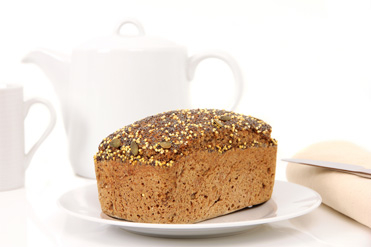I want to get rid of my varicose veins
Q. I I have unsightly varicose veins in my legs (I am 57), but my GP simply says it's a cosmetic problem and advised me to get support stockings. They don’t really help the aching and discomfort. What can I do? A. In recent years, varicose veins (VVs) have often been ignored, mainly due to NHS budget cuts. (Private medical insurance companies have also tended not to fund surgery.) However, new guidelines from Nice (the National Institute for Health and Care Excellence - www.guidance.nice.org.uk) recommend that GPs refer patients who have symptoms or complications to a vascular specialist. So it is worth asking your GP again, mentioning these new guidelines. ‘Varicose veins may seem a superficial problem but venous [vein related] conditions should be investigated by a specialist. GPs should no longer be the gatekeepers,’ says consultant vascular surgeon Mr Darryl Baker of London’s Royal Free Hospital.
VVs usually occur on the legs. ‘Leg veins return the blood to the heart. The surrounding leg muscles help push the blood along and valves in the veins stop the blood slipping back down. If the valves are not working properly, blood flows backwards under gravity and the veins become progressively more enlarged into varicose veins,’ says Mr Baker.
VVs are more common in people over 60, the majority women. They often run in families. Other factors are prolonged standing (I suffered VV s in my 20s when I was a cook), obesity, pregnancy, menopause and general ageing.
Symptoms that should lead to referral under the new guidelines include aching, itching, swelling, pain and throbbing with a sense of heaviness and discomfort. ‘These symptoms may warrant surgery,’ says Mr Baker. Complications include severe bleeding from even minor injury, thrombophlebitis (blood clotting in affected veins) or skin changes that may lead to ulcers near the ankles.
VV s can indicate underlying problems, particularly deep vein thrombosis. There are different ways to remove VVs. NHS hospitals are increasingly investing in endo-thermal technology, which uses heat from a laser or radio-frequency probe to cauterise the veins. This has now been shown to be quicker, with less post-operative pain, and to have the same recurrence rate as conventional surgery. Patients only need a local anaesthetic and are out of hospital within the day.
However, not all surgeons agree: Mr John Scurr (www.jscurr.com) says that local anaesthetic is not sufficient for some patients. Also he has seen a higher recurrence with endo-thermal laser technology, which damages the vein, rather than radiofrequency ablation, which destroys it. I would discuss the pros and cons with your surgeon.

SAY SPA-A-A!
If you can’t spare the time or resources for a holiday, consider a day or two at a spa. I recently visited Ragdale Hall (www.ragdalehall.co.uk) in Leicestershire, an old favourite still in private hands and celebrating its 40th anniversary. Two days of wandering in a robe between treatments (my hot stone massage was wonderful) and the thermal spa – as well as being nourished with delicious food – were so restorative. Find a directory of UK spas at www.goodspaguide.co.uk - click here.

RYE REMARKS
Sandwiches are ideal for picnics but ordinary bread can leave those of us who suffer from wheat intolerance with digestive problems, according to nutritionist Dr Sarah Brewer. Our testers loved Village Bakery organic rye bread, which is tasty, satisfying and has a low glycaemic index (GI). From £1.59 at www.village-bakery.com.
DON'T BE A BULL'S-EYE FOR TICKS
With summer come ticks, the nasty little arachnids that if infected can cause Lyme disease. I used to remove them from my horses with bare hands, but no longer. I have met people (and animals) who suffer the chronic, often intractable symptoms, which – if not treated with antibiotics within 30 days – can progress from flu-like fatigue, muscle and joint pain, head and neck ache to neurological symptoms, including limb numbness and pain, temporary paralysis of facial muscles, impaired memory and personality changes. If you or your family are walking in the country or parks, do cover up and familiarise yourself with the telltale ‘bull’s-eye’ rash. For more information visit www.nhs.uk and put Lyme disease in the search box.
